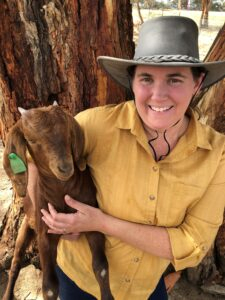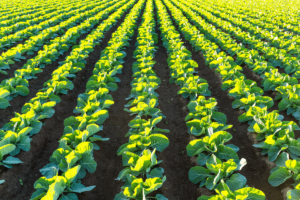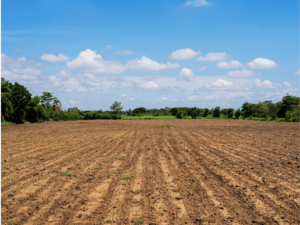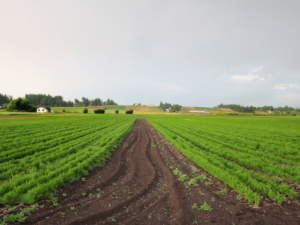Rural property ownership in Australia offers the allure of open spaces, fresh air, and a break from the hustle and bustle of city life. Whether you are looking to invest in a farm, a hobby block, or a rural retreat, financing such a purchase requires a specialized loan known as a rural property loan. In this guide, we’ll explore the intricacies of rural property loans in Australia, highlight their differences from standard home loans, and outline how rural finance brokers like Rivendell Rural can assist you in securing the best deal.
What Are Rural Property Loans?
Rural Property Loans in Australia are specialized loans designed for the purchase of land and properties in rural areas, including farms, lifestyle blocks, and agricultural businesses. These loans differ from standard home loans due to the unique nature of rural properties, which often have larger land sizes, less developed infrastructure, and potential for agricultural or business activities.
In Australia, the classification of rural properties generally depends on factors like land size, zoning, and the intended use of the property. Properties intended for farming or business purposes may face stricter lending criteria than residential homes, making it crucial for borrowers to understand the nuances of Rural Property Loans in Australia.
Challenges of Financing Rural Properties
Financing rural properties can be more complex than obtaining a standard home loan. Lenders typically assess rural properties differently, with various factors influencing the loan-to-value ratio (LVR), interest rates, and repayment terms. Some of the challenges include:
- Land Size and Usage: Banks may limit the amount they are willing to lend based on the size of the property. Properties larger than 50 hectares or used for agricultural purposes might require a commercial loan, which has different criteria and interest rates compared to residential loans.
- Location and Accessibility: Rural properties located in remote or less accessible areas may be considered higher risk by lenders. Limited access to utilities, roads, or services can affect the property’s resale value, impacting the bank’s assessment.
- Income Generation: If the property is being purchased for farming or other income-generating purposes, lenders will closely evaluate the potential revenue and associated risks. Agricultural income can be unpredictable due to weather conditions, market prices, and operational costs, so lenders might be more conservative with loan offers.
- Zoning and Restrictions: The zoning of rural land can influence the type of loan available. Rural residential properties may qualify for standard home loans, while properties zoned for farming or agriculture might require a rural property loan or commercial finance.
Loan Options for Rural Property Purchases
When looking to finance a rural property, several loan options are available, each catering to different types of borrowers and property needs.
- Rural Home Loans: For those purchasing a rural property for residential purposes (e.g., a house on acreage), a rural home loan may be suitable. These loans are similar to standard home loans but may have different LVR limits depending on the property’s size and location.
- Agricultural Loans: If the primary purpose of the property is farming or agricultural business, an agricultural loan is typically the best fit. These loans take into account the potential income from farming and may offer more flexible repayment options to account for seasonal variations in income.
- Land Loans: For those interested in purchasing vacant land with the intent to develop it later, a land loan may be an option. Land loans typically have higher interest rates and lower LVRs, as they are considered riskier by lenders.
- Business Loans: If the rural property is part of a larger business venture, such as agribusiness or eco-tourism, a business loan might be the most suitable. Business loans offer flexibility in terms of repayment and loan structures, often based on the financial performance of the business.
Factors Lenders Consider for Rural Property Loans
Given the unique nature of rural properties, lenders will consider several factors before approving a loan application. Understanding these factors can help potential buyers better prepare for the loan process.
- Property Size: Lenders may be cautious about large rural properties due to their potential difficulty in resale. Generally, properties under 10 hectares are treated similarly to residential homes, while larger properties may require specialized rural loans.
- Infrastructure: Properties with established infrastructure, such as houses, sheds, and water systems, may be viewed more favorably by lenders. The availability of essential services like electricity, water, and road access can also affect loan terms.
- Borrower’s Financial Position: As with any loan, the borrower’s financial situation is a critical factor. Lenders will assess income, employment stability, credit history, and assets to determine the loan amount and interest rate.
- Purpose of the Property: Whether the property will be used for residential living, farming, or a combination of both will influence the loan structure. Properties used for income-generating purposes may require detailed financial statements and business plans to support the loan application.
The Role of Rural Finance Brokers
Navigating the complexities of Rural Property Loans in Australia can be daunting, especially for first-time buyers or those unfamiliar with rural financing. This is where rural finance brokers, such as Rivendell Rural Finance, come into play.
Rivendell Rural Finance specializes in assisting clients with rural property loans in Australia. They offer tailored solutions to suit the specific needs of rural property buyers, whether it’s for residential, agricultural, or commercial purposes. With their deep understanding of the challenges involved in securing finance for rural properties, they can help you find the right loan by:
- Assessing Your Needs: Brokers at Rivendell Rural Finance work closely with clients to understand their specific goals, whether it’s purchasing a farm, expanding an agricultural business, or buying a rural retreat. They take into account the size and purpose of the property, the borrower’s financial situation, and the loan’s terms.
- Sourcing Competitive Loans: With access to a wide range of lenders, rural finance brokers can help you find competitive loan products that may not be available through traditional banks. They can also negotiate on your behalf to secure favourable interest rates and terms.
- Simplifying the Application Process: Applying for a rural property loan involves extensive paperwork, including financial statements, business plans, and property appraisals. Rural finance brokers handle much of the administrative work, making the process smoother and faster for the borrower.
- Providing Expert Advice: Brokers like Rivendell Rural Finance have a wealth of knowledge about the rural property market and the challenges faced by rural borrowers. They can offer expert advice on loan structuring, refinancing options, and financial strategies to ensure you secure a loan that meets your long-term goals.
Conclusion
Rural property loans in Australia are a specialized form of finance that caters to the unique needs of rural and agricultural properties. While the loan process can be more complex than standard home loans, rural finance brokers such as Rivendell Rural Finance can guide borrowers through the intricacies and help them secure the best possible loan.
If you’re considering purchasing a rural property, be sure to seek expert advice from experienced brokers who understand the specific challenges and opportunities of rural finance. With the right guidance, you can turn your dream of rural property ownership into a reality.








